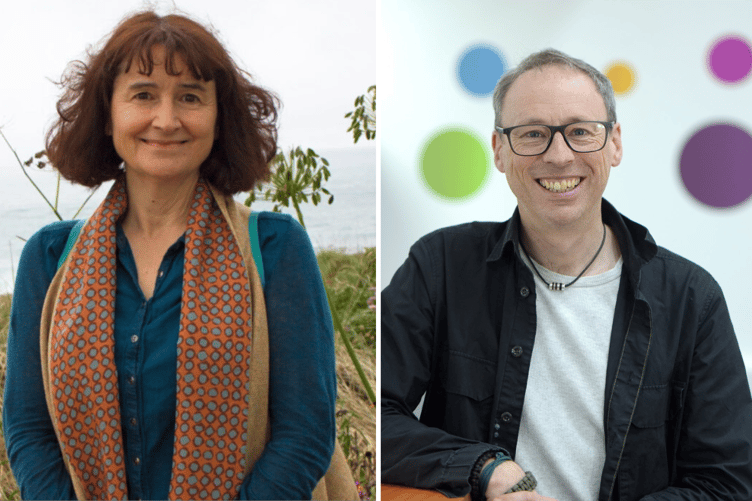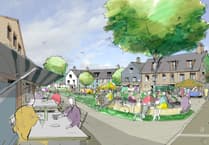A QUIETLY revolutionary yet wildly ambitious group of movers and shakers in Cornwall are working together to provide hope for the future and an escape from the housing crisis, which is blighting life for so many in the Duchy.
Homes for Cornwall is a politically neutral band of volunteers committed to reversing the lack of affordable housing in Cornwall by forming a “collective uprising”.
Formed by business and community leaders including Sam Galsworthy (Trewithen Estate, High Sheriff of Cornwall), Nick Rodda (Rodda’s), Andy Snapes (Ward Williams Associates), Emma Stratton (Scarlet and Bedruthan hotels) and Allister Young (Coastline Housing), Homes for Cornwall is a galvanising force, applying fresh and creative thinking to the challenge of creating homes for everyone and thus ensuring the survival of communities across Kernow.
Allister said: “The housing crisis isn’t just about the 20,000 on the social housing waiting list, it’s not just about the 900 families who are stuck in temporary accommodation, it actually affects every one of us. There’s probably not a single person in Cornwall whose life isn’t in some way negatively impacted by the fact that we don’t have enough decent, secure affordable homes.”
The collective is supporting altruistic landowners who are willing to gift or offer land for community housing. The Acre Project has been instigated after some private individuals agreed to donate an acre to their communities. Homes for Cornwall is working on the legalities of protecting that gifted land for the future for each community.
Emma Stratton said: “We’re starting to challenge policy and how things have been done traditionally, as housing will need to be more flexible in the future. The rents are so high in Cornwall. Unless you’re earning a hell of a lot of money – much more than the median Cornish wage – you’re never going to afford to buy. So what can we do to unlock that?
“We need to create space for people where they can pay a rent but it’s low enough that they can also save for a deposit. For example, a way that farmers could farm homes in the same cycle as an orchard, which is 25 years. A farmer would get a better return if we put some beautiful micro houses on a small setting with communal facilities, like parking, electrical charging and laundry facilities. After 25 years you could return that field to pasture or woodland.
“It could be possible to have someone living there who could pay a rent which would make the scheme financially viable, but also enable them to save for a deposit. That could be very attractive to people who would like to be on the housing ladder but can’t currently get on it.
“We’ve got to be brave. Hopefully, we can try things as a pilot and see if it works, because we’re not going to get change if we don’t try some new stuff.”
Homes for Cornwall is actively speaking to the government and MPs – including Deputy Prime Minister Angela Rayner and Housing Minister Matthew Pennycook – to strip out red tape rules to allow more flexible use of land for housing for local people.
Emma continued: “It’s really difficult if you’re in a public organisation to create change. That’s why we’ve been trying to challenge some of the areas around planning and housing. We’re receiving positive feedback that people are now having conversations which they never would have dared have a few years ago.”
Homes for Cornwall intends to provide an online resource to offer advice on planning, community land trusts and architect designs to aid each community’s decision making. A ‘time bank’ of experts can give free advice to town or parish councils at the start of a project to talk through the housing they want, so the community starts to own the process.
“If we can take the fear out of housing, so communities feel that they’re creating the homes they need to ensure their community stays strong, that’s a good thing,” added Emma.
What about the spectre of Nimbyism?
“Nimbyism is a tricky word,” said Allister. “It’s people’s reaction to something they’re scared of and most people are scared of change. If you live in a village which perhaps hasn’t changed much, you own your own home and you’re happy there, then you’re going to be scared of change. That’s a natural human instinct.
“What we’re trying to do as Homes for Cornwall is talk about things in a positive way; to talk about housing with hope rather than fear.”
The group’s vision will be highlighted at a special event, Hope for Cornwall, at the Hall for Cornwall in Truro on Tuesday, September 17.
Emma added: “We’ll lose the Cornwall we love if we don’t give people homes that make the culture the rich tapestry that it is.”

.png?width=209&height=140&crop=209:145,smart&quality=75)



Comments
This article has no comments yet. Be the first to leave a comment.